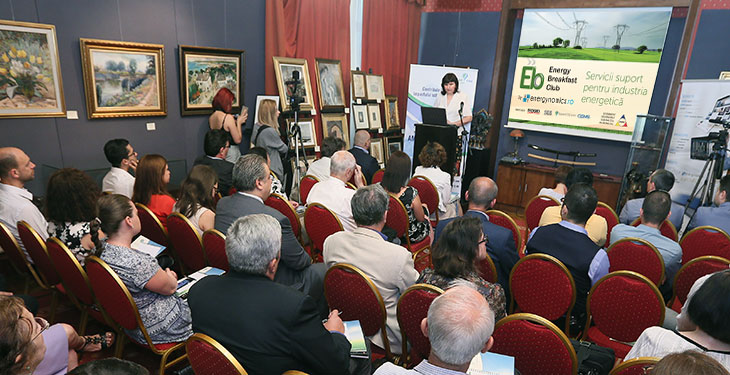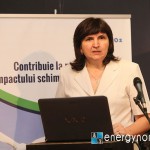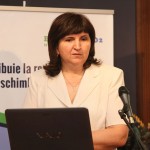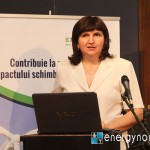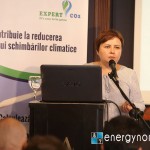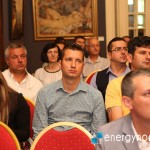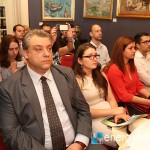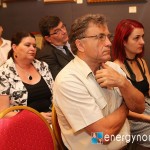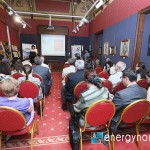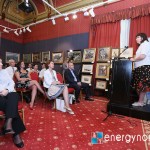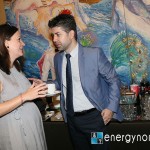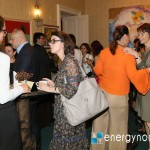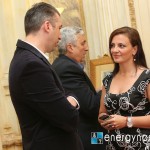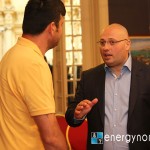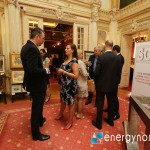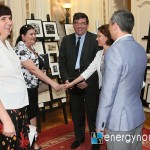Wednesday, July 6, energynomics.ro organized its first Energy Breakfast Club dedicated to support companies for the Romanian energy industry. Bogdan Teodorescu, CEO TDR Energy, explained the mechanisms of pollution rights market and introduced some of the most effective options for reducing the carbon footprint. Corina Truică, COO CEMS Technologies, discussed the advantages of outsourcing maintenance services for refineries and large industrial units.
The debates were opened by Corina Popescu, State Secretary in the Ministry of Energy, who presented the current situation and the prospects of the companies in the mining sector to fully comply to the environmental constraints, especially those related to CO2 reduction.
Corina Popescu: We need coal
Present days’ torment in the Romanian mining sector comes from an “inefficient development of this activity,” and not because it would unnecessary for the national energy system, Corina Popescu insisted. “Unfortunately, the mining companies have been used for social protection, and this is the main reason why they are in the current situation,” Corina Popescu said. The official from the Ministry of Energy pointed out some differences between the two major coal basins, Jiu Valley, respectively Gorj County. Problems with greenhouse gas emissions are specific to Jiu Valley coal mines and we expect new intensified pressure from the European Union towards reducing these emissions even more. “In the European Commission a new directive is under negociation, and this might be adopted by year’s end,” Corina Popescu said.
Technological solutions for greenhouse gas emission reduction are still underdeveloped and high too expensive at the current price of carbon certificates. As a result, part of the solution is a painful, but necessary decision: adding to more mines from the Jiu Valley in the European mine closure program, in addition to the three already included. “We have discussions with the European Commission in this regard, and we want to keep two mines operating. We want to keep them because we might find investors and we might be able to streamline their operations, because we need energy in that area”, Corina Popescu said. “At least until 2024, two generation plants – Deva and Paroşeni – will maintain their role in the energy system of the area”, Corina Popescu said.
On the other hand, as a different kind of solution for the region, the Jiu Valley is on the Government’ list of priorities for different economic activities to be developed there.
For the mining areas in Gorj, the difficulties are not necessarily related to greenhouse gas emissions reduction obligations, while they are more related to the way expropriations are conducted. “There is a very old regulation [in this regard], this must be reviewed and put back on right foundation. It does not seem right to me that some receive mmore benefits than others. We must find a way to have a fair treatment for all,” the state Secretary said.
Pro-bono carbon footprint assesment from TDR Energy
Bogdan Teodorescu, CEO TDR Energy, presented how the voluntary carbon market works and some solutions for neutralizing the carbon footprint. “More and more companies that are not under the mandatory scheme (EU-ETS) began to voluntarily assume responsibility for their emissions because they understood the need to contribute to the reduction of the climate change impact,” Bogdan Teodorescu said. The main motivation is related to CSR – corporate social responsibility.
Bogdan Teodorescu presented some 2016 data gloabally on the most common types of projects used in CSR campaigns for neutralizing the carbon footprint. Renewable energy and forestation comprise over 60% of all these projects.
“Within our own CSR campaign, TDR Energy will calculate – for free – the carbon footprint for companies interested to identify the impact their CO2 emissions have on the environment,” Bogdan Teodorescu announced.
DOWNLOAD THE PRESENTATION OF BOGDAN TEODORESCU
TDR Energy provides services such as selecting projects which meet the requirements for operation, monitoring and reporting of emission reduction units; this allows for achieving real and measurable environmental benefits by reducing the greenhouse gas emissions.
Knowing the structure and of the total carbon footprint allows the introduction of effective policies and processes in terms of reduction of greenhouse gas emissions and thus contribute to increasing the energy efficiency of the company.
Subsequently, for companies that want to take responsibility for these emissions, TDR Energy enables the carbon footprint neutralization. Thus, carbon certificates are used, from projects that satisfy the requirements regarding operating, monitoring and reporting of emission reduction units, allowing for real and measurable environmental benefits by reducing emissions component of greenhouse gas emissions.
TDR Energy’s experts also “ensure full transparency on information, starting from the project beneficiary, validated certificates issuing, and then up until their withdrawal from the market,” Bogdan Teodorescu said.
Maintenance services in the country where “anything goes”
Corina Truică, COO CEMS Technologies, presented integrated and standardized maintenance services as a professional solution to reduce risks and costs for large industrial units.
Corina Truică mentioned one of the conclusions after the recent debates for shaping the national energy strategy: “Postponing maintenance works threatens the security of the energy system.” “We started from the fact that we live in the land where ‘anything goes'”, but also, globally, there are already many sectors well advanced in developing maintenance systems, as can be seen particularly in the aviation or the military industry, Corina Truică said. “A refinery is not much different in terms of the necessary rigor and risk prevention tools,” added the representative of CEMS, a group which includes CEMS EPC, CEMS Technologies and BARTEC Safety Engineering.
Corina Truică presented what objectives a maintenance process should aim at:
- Maximizing the results from any asset (equipment, installation etc)
- Risk management
- Reliability = zero unscheduled interruptions
- Safety of personnel and equipment
- Energetic efficiency
- Operating costs control and CAPEX
- Compliance with legal requirements and technical standards
DOWNLOAD THE PRESENTATION OF CORINA TRUICĂ
Over 50 representatives from ACUE, Almaj& Albu, Alpha Cab, BEIA Consult Internaţional – distribuitor autorizat Siemens, Brinel, Carrefour, CE Oltenia, CEMS, ETIC, Flash Group, Govnet, Grupul Mobexpert, INCDE-ICEMENERG, INCE, Institutul Naţional de Cercetare-Dezvoltare în Informatică, Kapsch România, Link Builder, Matei Conf Grup, MeliorCras, Ministerul Energiei, Mol Romania, No Risk, PFA Marin Slavila, Phoenix Contact, Premier Palace, Repower Furnizare Romania, ROMGAZ, Smakerting , Star Soft Group, TDR Energy, Transelectrica, United Romanian Breweris Bereprod – Tuborg, Vestra, Vistana attended the presentations and participated in discussions.
The event was organized by energynomics.ro and supported by our partners: CEMS, TDR Energy, Ridgid, SGS România.
Participation
This year, energynomics.ro aims to organize at least 6 more Energy Breakfast Club meetings. The schedule and the proposed themes are here.
